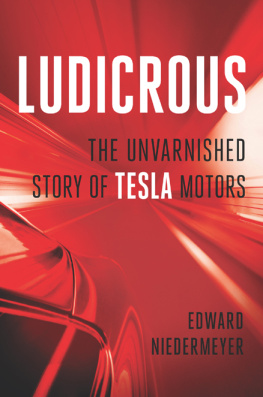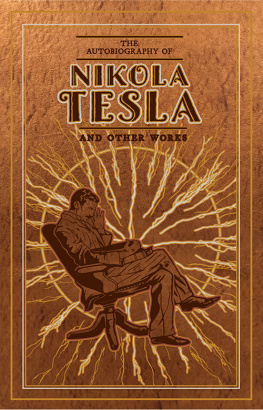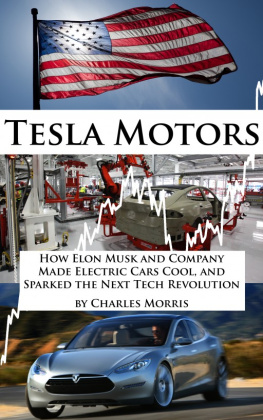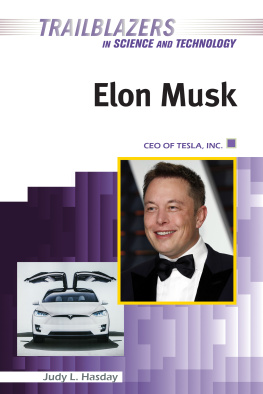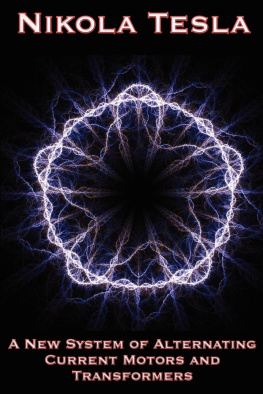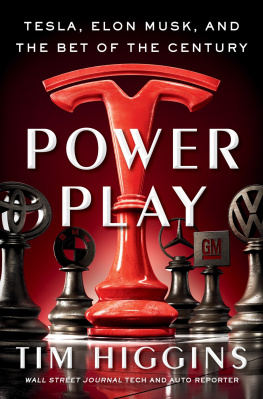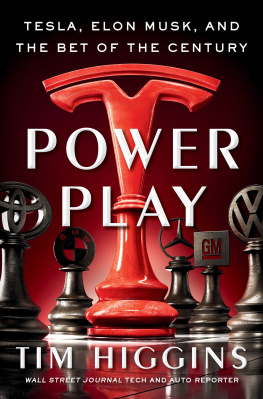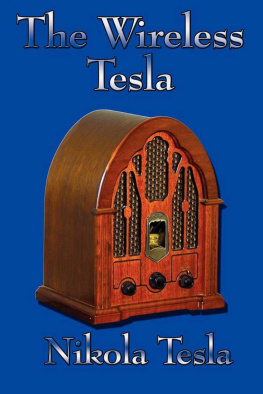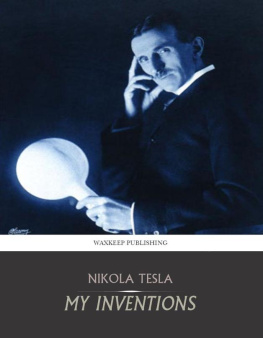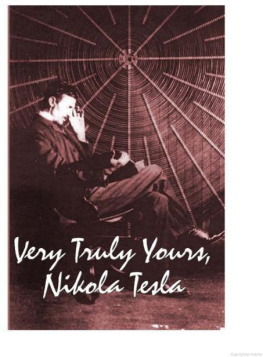Contents
Guide
PRAISE FOR LUDICROUS
Ludicrous is a revealing look at Teslas tumultuous history from the internets leading Tesla skeptic.
TIMOTHY LEE, reporter at Ars Technica
Ed Niedermeyers deep dive into Tesla reveals the complex, fascinating, and often frustrating world of a company that has achieved great heights and is at risk of an even bigger fall. This isnt a book for the faint of heart. It lays bare all of Teslaincluding the flaws and scar tissuegiving an unadulterated view of an enigmatic company and its rise from unknown upstart to a high-profile global automaker.
KIRSTEN KOROSEC, senior reporter at TechCrunch
The Tesla book we need, but dont deserve.
ALEX ROY, founder of the Human Driving Association and author of The Driver: My Dangerous Pursuit of Speed and Truth in the Outlaw Racing World
Teslas public coming out party in 2016 roughly corresponded to the beginning of my own automotive journalism career and like Ed, Ive written way too many words about the company and its problematic CEO, Elon Musk. Its a tough company to cover in part because of aggressive fan base that has developed into a cult of personality around Musk himself. Tesla has probably done more to improve the public vehicle electrification than any other company. Unfortunately, while the erratic and troubled CEO has many fascinating ideas from reusable rockets to hyperloops to ludicrously quick electric sedans and SUVs, his refusal to cede control to competent people that can execute has caused the company endless headaches. Ed has taken on the challenge of chronicling a company that prefers to only be discussed by its fans in an even-handed way that covers what went right and what failed. Its a fascinating read, especially for those that have only read the superficial coverage in most of the media or the bickering on twitter.
SAM ABUELSAMID, principal mobility research analyst at Navigant Research


This book is based on public statements and records as well as notes and recordings of interviews conducted by the author. No details are invented, though certain names, persons, and places have been changed to protect individuals privacy. Occasionally, a quotation was lightly edited for clarity.
Copyright 2019 by Edward Niedermeyer
All rights reserved. No part of this book may be used or reproduced in any manner whatsoever without written permission except in the case of brief quotations embodied in critical articles or reviews.

BenBella Books, Inc
10440 N. Central Expressway, Suite 800
Dallas, TX 75231
www.benbellabooks.com
Send feedback to
First E-Book Edition: August 2019
Library of Congress Cataloging-in-Publication Control Number: 2019009578
ISBN 9781948836128 (trade cloth)
ISBN 9781948836326 (ebook)
Editing by Claire Schulz
Copyediting by Scott Calamar
Proofreading by Greg Teague and Cape Cod Compositors, Inc.
Indexing by WordCo Indexing Services, Inc.
Text design by Aaron Edmiston
Text composition by Katie Hollister
Cover design by Kara Klontz
Cover photo by Alessio Lin on Unsplash
Author photo by Sharad Vegda
Printed by Lake Book Manufacturing
Distributed to the trade by Two Rivers Distribution, an Ingram brand
www.tworiversdistribution.com
Special discounts for bulk sales (minimum of 25 copies) are available.
Please contact
For Andrea
CONTENTS
Writing this book has been the greatest challenge of my professional career. Teslas story not only sprawls across a broad variety of complex subjects, its also permeated with nuance that tends to get lost in the polarized public debates it inspires.
To say that this story had a few twists and turns in the years since I started working on this book would be a wild understatement. To the companys fans, Tesla has always appeared on the brink of total domination, while to its skeptics, it has always been on the edge of complete collapse. Each new development, positive and negative, tends to send perceptions and expectations soaring or sinking and can easily appear to reshape the narrative arc of Teslas history.
The auto industry is one of the most complex and challenging businesses possible; new entrants face particularly steep obstacles. That worldview has always informed my coverage of all automakers, not just Tesla. But, perhaps misunderstanding my cautious perspective, Tesla fans have often categorized me as a hater and characterized my work as an attempt to destroy the company they love. Almost as soon as I began seriously writing about Tesla, I received heated attacks, first from its fans and investors, and later (just as I was starting to work on this book) from the company itself.
I usually avoid injecting myself into my writing because I want my work to stand or fall on its merits alone (and also partly because I dont believe I am particularly interesting). But because the majority of these attacks focus on my perceived motivations rather than the substance of my reporting and analysis, I feel that I have little choice but to explain how I came to my perspective on this story. In hopes of limiting this distracting speculation about my motivations, I will share my personal experiences at times in this book.
Teslas ruthlessly personal approach to public relations, and the similarly aggressive fan culture it has inspired, also explains why there are essentially no named sources in this book. Hundreds of hours of interviews with then current and former Tesla employees, executives, directors, and partners went into this book, and almost every one asked for some form of anonymity out of fear of retribution by the company. Numerous anecdotes and data points have been left out at their request, lest they betray a sources identity.
As frustrating as it is not to be able to share some of these richly illustrative (and often wildly entertaining) stories or show how well-informed these sources are, I cant blame any of them for speaking only on the condition of anonymity. Having seen so many actual and potential Tesla whistleblowers smeared, sued, and intimidated, I believe their fears are reasonable. Under the circumstances, the fact that any of them risked their personal and professional well-being to share their stories with me at all speaks to their courage and conviction. I owe them all the deepest thanks, and I only wish they could receive the credit they so richly deserve.
W hen I started studying and writing about the auto industry in 2008, I had no idea that cars and mobility were on the precipice of fundamental change. I was simply a kid who had left college at the wrong time and couldnt even get work waiting tables, thanks to the fact that the economy was crashing down around me. My dad, a lifelong car guy, spent his spare time writing for an automotive blog called The Truth About Cars (TTAC) that had made its name predicting the downfall of the Detroit automakers, and when the opportunity was offered, I agreed to start freelancing there.
Within months of diving into the woestruck auto industry, I realized that I had lucked into one of the most fascinating and underappreciated subjects in modern life. Cars, it turned out, are more than just the expensive consumer goods I had always thought them to be; they are a cornerstone of our material culture that touches almost every aspect of society. From aesthetics and engineering to history, politics, economics, the environment, trade, and urban development, the auto industry was a lens through which I could explore a wealth of complex topics and ideas.
Next page
